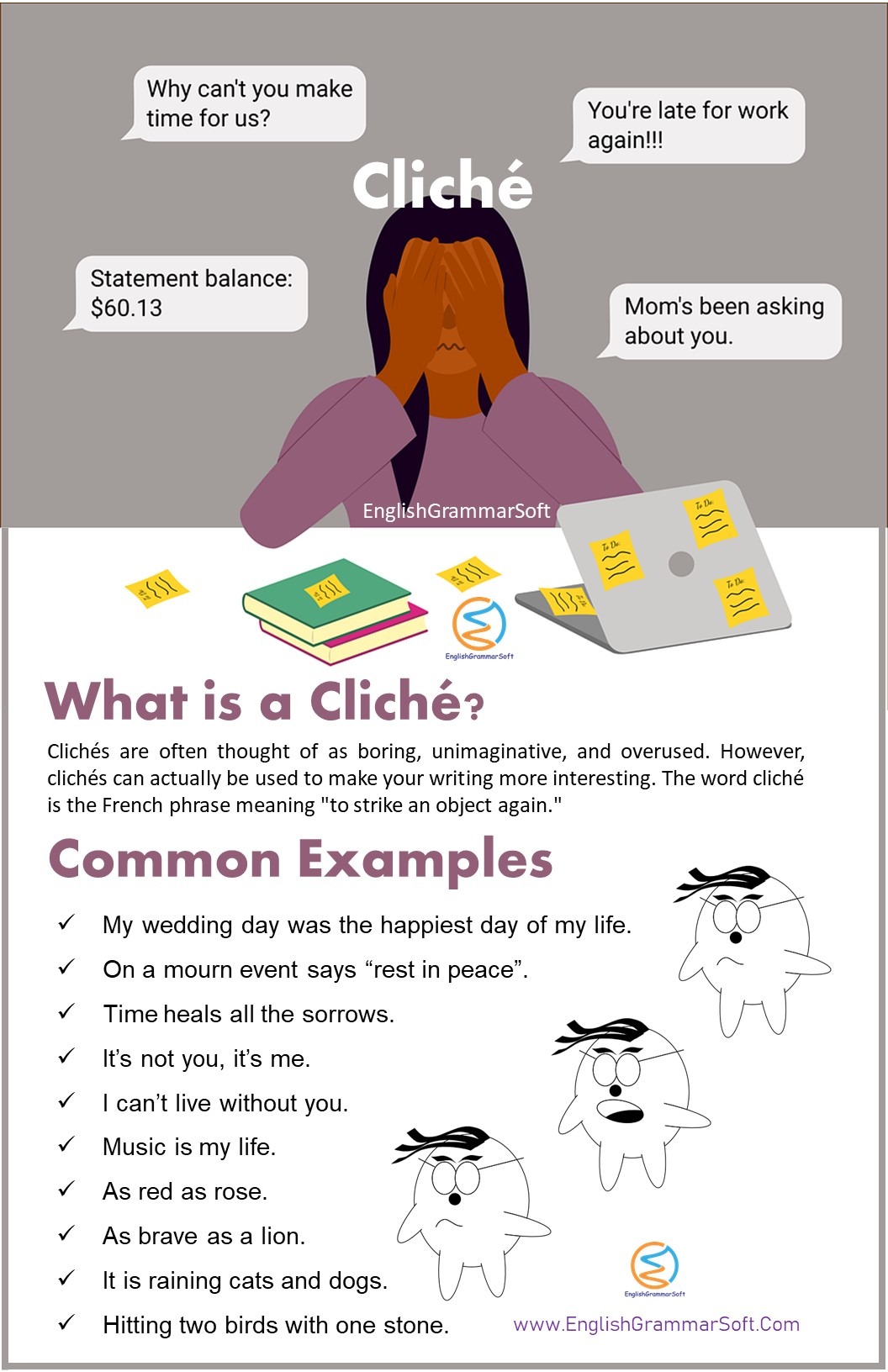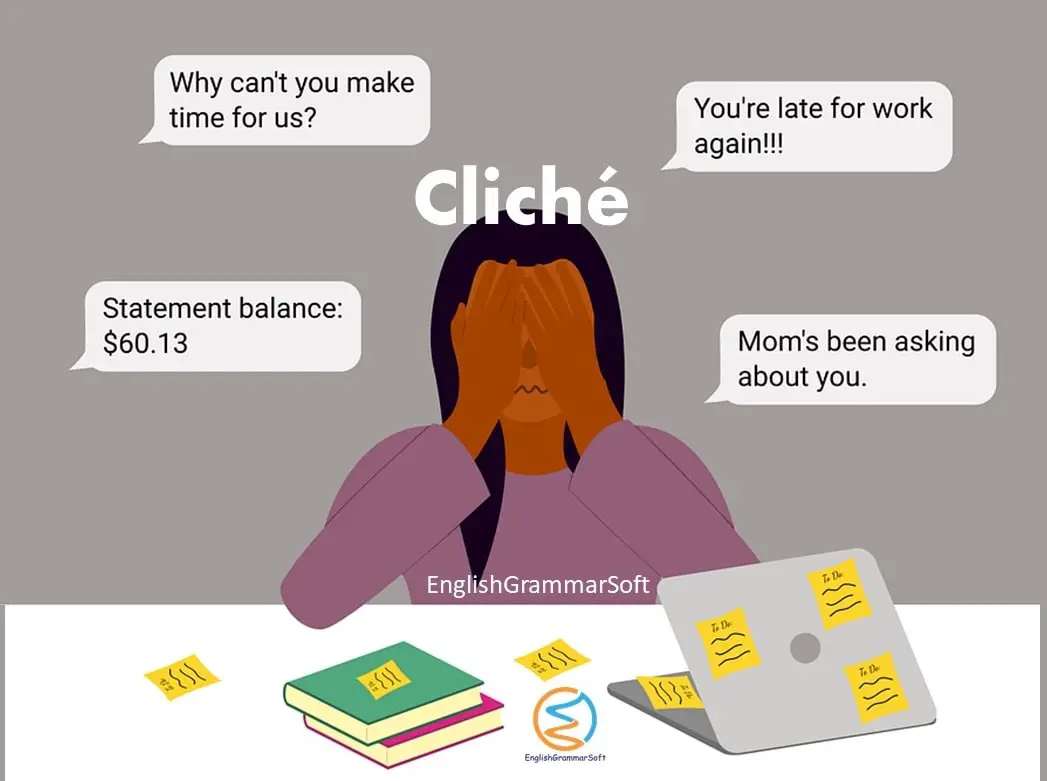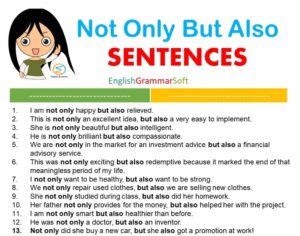What is a Cliché? (Examples in Literature & Sentences)
What is Cliché?
Clichés are often thought of as boring, unimaginative, and overused. However, clichés can actually be used to make your writing more interesting. The word cliché is the French phrase meaning “to strike an object again.”
Clichés are often used in writing to create an emotional response. Clichés can be a valuable tool for writers, but they should be handled with care and only used when necessary.
The term comes from the French word “clicher,” which means “to stereotype” because clichés have been copied time and again by many different authors until they became one-dimensional images of their former selves. It was first known to be used in 1881.
Definition
A cliche is defined as something that has been overused or repeated so often that its original meaning has become worn out or even lost completely.
It is an overused, oversaturated, and unoriginal expression that has lost its original meaning and effect. It can be a story or theme that remains no longer original and interesting. A large number of idioms have become cliché because of their excessive use. By excessive use, sometimes the words have lost their original meaning. It also refers to predictable actions or events on the basis of previous events.
According to Gerade Nerval, “The first man who compared woman to a rose was a poet, the second an imbecile.
Common Use of Cliché in Sentences
- My wedding day was the happiest day of my life.
- On a mourn event says “rest in peace”.
- Time heals all the sorrows.
- It’s not you, it’s me.
- I can’t live without you.
- Music is my life.
- As red as rose.
- As brave as a lion.
- It is raining cats and dogs.
- Hitting two birds with one stone.
Cliché Examples
- The sky is blue
- I’m going to be late
- It’s raining outside
- What time is it now
- You’re not serious, are you ?”
- I don’t know what to do with my life
- I’m not really a morning person.
- All work and no play makes Jack a dull boy.
- The early bird gets the worm.
- You can’t teach an old dog new tricks.
- A penny saved is a penny earned.
- The best things come to those who wait
- Every cloud has a silver lining
- It’s always darkest before the dawn
- You can’t judge a book by its cover
- Time heals all wounds
- All that glitters is not gold
Examples of Cliché in Literature
Ex. 1. An essay on Criticism by Alexander Pope
Where’ver you find the cooling western breeze
In the next line it whispers through the trees,
If crystal streams ‘with pleasing murmurs creep,
The readers threatened (not in vain) with sleep
Here in the above lines, Pope is criticizing the typical and stereotypical manners of the 18th century. He creates an image of death by telling that the writer’s clichés sometimes caused boredom for the readers.
Ex.2. Romeo & Juliet by Shakespeare
“A rose by any other name would smell as sweet”
Juliet said this line for Romeo considering that no matter whether he belongs to her enemy’s family. It shows that the quality of a thing is important than the thing itself.
Ex. 3. Hamlet by Shakespeare
Hamlet: Slanders, Sir. For the satirical rogue says here that old men have gray beards, that their faces are wrinkled, their eyes purging thick amber and plum-tree gum, and that they have a plentiful lack of wit, together with most weak hams, all which, sir, though I most powerfully and potently believe, yet I hold it not honesty to have it thus set down, for yourself, sir, should be old as I am. If like a crab you could go backward.
Polonius: Though this be madness, yet there is method in it.
Here in the above lines, the cliché has been observed in the speech of Hamlet and by observing the state of mind of Hamlet, Polonius consider it madness which has a method in it.
Ex. 4. Henry IV by Shakespeare
Hotspur: Marry, and I am glad of it with all my heart
I had rather be a kitten and cry mew,
Than one of these same meter ballad-mongers,
I had rather hear a brazen can stick turned,
Or a dry wheel grate on the axle-tree,
And that would set my teeth nothing on edge,
Nothing so much as mincing poetry,
Tis like the forced gait of a shuffling nag.
Here in the above lines, the highlighted words are example of a cliché.
Difference between Trope & Cliché
‘Trope’ is an idea or a theme or an analogy that is both apparent and clear-cut. “the Chosen One”, “the object of Power”, “the knight in shining armor”.‘Cliché’ can be a trope that has become over-statured or misused. One can think ‘the chosen one’ would be a tired or cliche trope, but we achieve to keep getting decent stories by using it. The phrase, “his teeth were white as pearl’s” is a cliche.

Further Reading
- List of Cliche
- Examples of Assonance
- Examples of Innuendo
- Examples of Exclamation in Literature
- Onomatopoeia Examples
- Interrogation Examples in Literature
- Types of Paradox in Literature
- Oxymoron Examples from Literature
- Synecdoche Examples in Literature
- Figures of Speech with Examples
- Antithesis Examples in Literature
- Euphemism Figure of Speech
- Pun Figure of Speech
- Metonymy Classification & Examples
- What is a simile in literature? How to write a good simile?
- Types of Metaphor with Examples
- Apostrophe as a Figure of Speech
- Personification with Examples
- Hyperbole Definition and Examples
- Fable Meaning and Examples in Literature
- What is Epigram in Figure of Speech?






